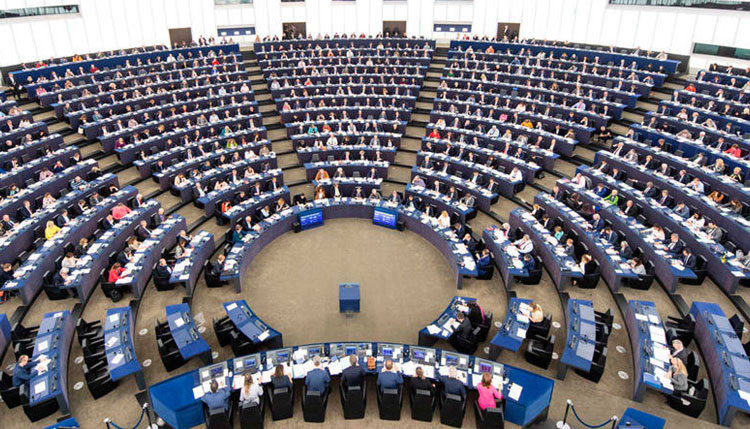The Diplomat
The European Parliament will hold a monographic debate next week, probably on Wednesday the 22nd, on the amnesty law and the rule of law in Spain. This was agreed yesterday by the Conference of Presidents of the European Parliament, with the support of the European People’s Party (EPP); of the Liberals (RE) where Ciudadanos and PNV are integrated; from the group of Europeans and Reformists (ECR) of which Vox is a part; and the far-right group Identity and Democracy.
The European People’s Party had already announced, at the beginning of this week, its intention to promote the holding of this debate, but other similar proposals from ECR and the RE Liberals were also on the table. All of them were presented to debate the risk that they consider the amnesty law poses to the rule of law, which yesterday allowed Pedro Sánchez to be sworn in again as President of the Government, thanks to the support of the Catalan independence groups, which benefited from it.
The European Parliament holds a debate every month on current issues, at the proposal of the groups, and provided it is supported by other forces. The EPP MEP Dolors Monserrat expressed her satisfaction with the decision, underlining that “Sanchez’s pacts against judicial independence violate the principles defended by the EU”, while Adrián Vázquez, MEP of Ciudadanos stated: “The values of the Union are a democratic limit that should not be exceeded, even for those who have no limit to trying to continue clinging to power.
PP and Ciudadanos manage, in this way, to take another step in their desire to Europeanize the issue of the amnesty law, although the debate will be strictly political, will not have any legislative or legal repercussions and will not be accompanied by any resolution or vote.
However, both the European Commission and the Council will have to be present in the debate, which means that a member of the Spanish Government, which this semester holds the rotating presidency of the EU, must attend. A large presence and participation of Spanish MEPs from all groups is expected.
Meanwhile, the European Commission continues studying the text of the amnesty law presented by the Socialist Parliamentary Group in the Congress of Deputies. Yesterday, the vice president of the community executive body, Margaritis Schinas, said in Madrid: “There are developments that we are following closely, we are going to assess these developments as always, based on the facts and based on the law”.
Schinas, who was participating in the European Union Law Summit organized by the ICAM, defended the separation of powers and indicated, without expressly mentioning the text of the amnesty, that the European Commission always “applies the law” reflected in the European treaties.
Hours earlier, the Minister of Foreign Affairs of Italy and former president of the European Parliament, Antonio Tajani, when asked in the Chamber of Deputies of that country by the legislator of the group “We Moderates” Calogero Pisano, about the law of Spanish amnesty, expressed his respect for the political debate in Spain, but said that it is “inevitable” that “certain events” will have a European resonance, due to their “divisive and controversial concessions” with the rule of law.
“In an increasingly interconnected Europe, it is in any case inevitable that certain internal political events will have a resonance in the broader European political debate because they can influence the Union,” said Tajani, who received the Princess of Asturias Award in full. ‘procés’ and the Carlos V European Prize from the King, in 2018, for his defense of the unity of Spain when he was at the head of the European Parliament.






